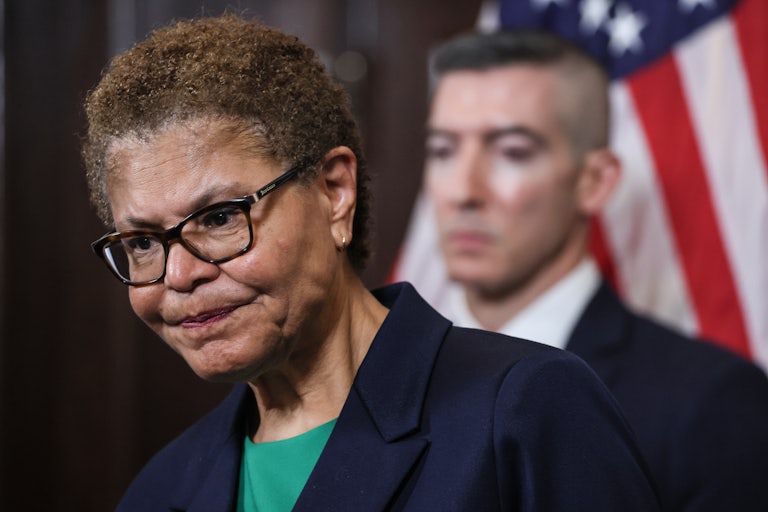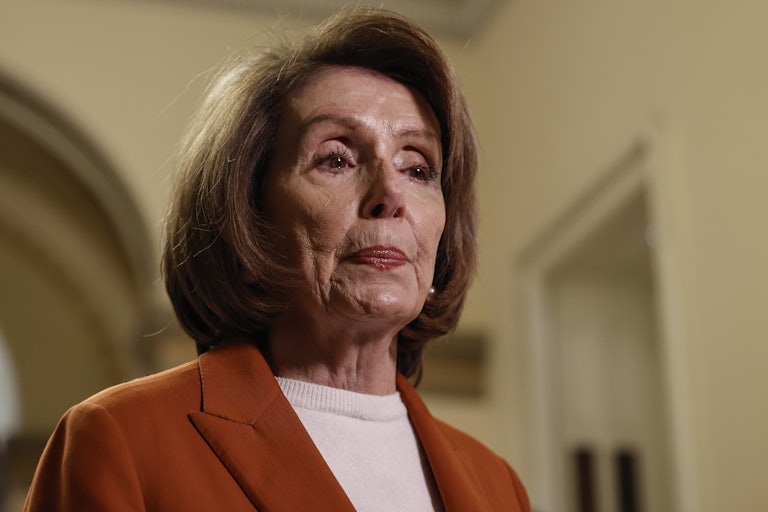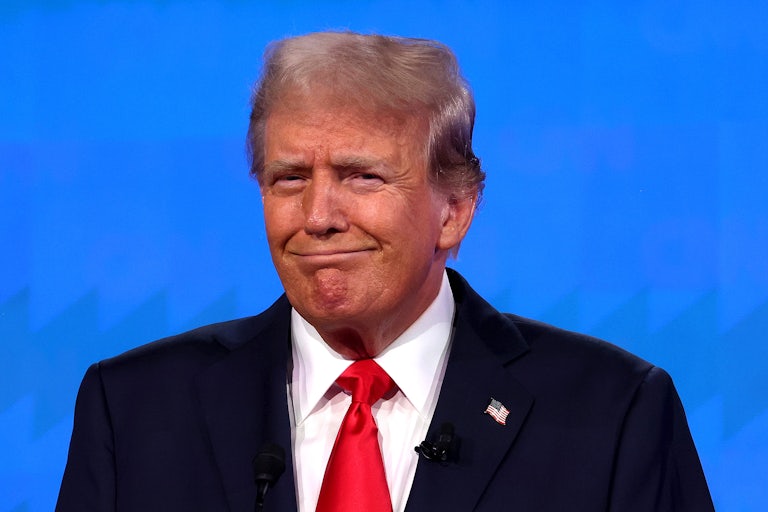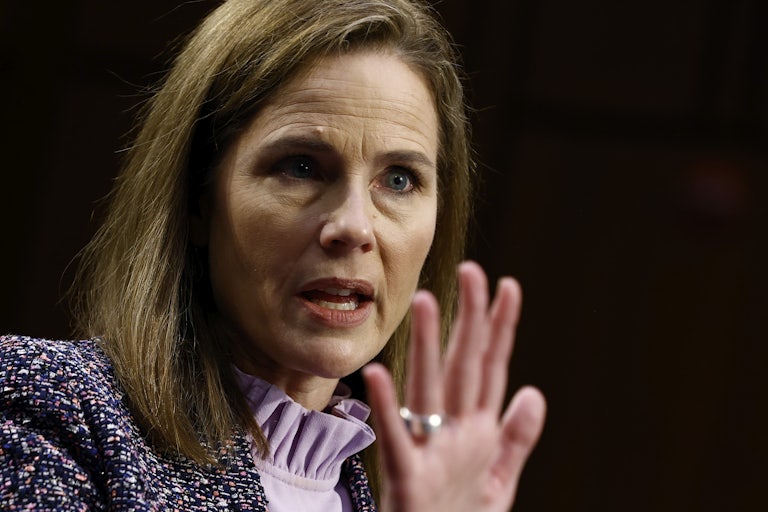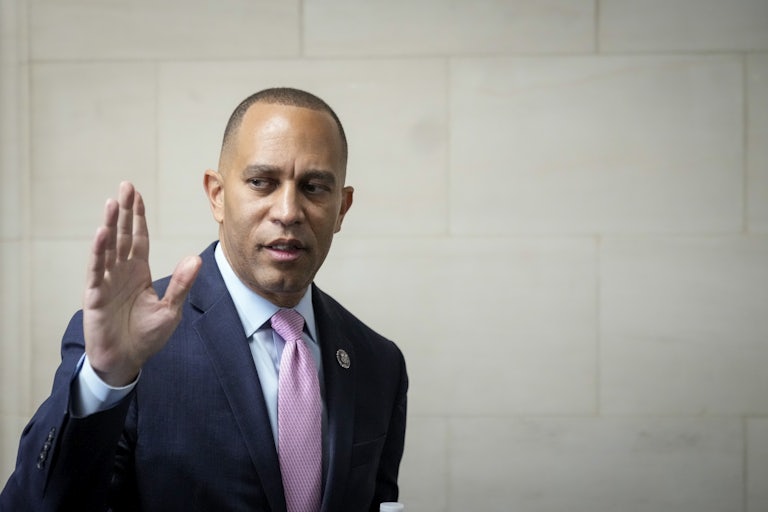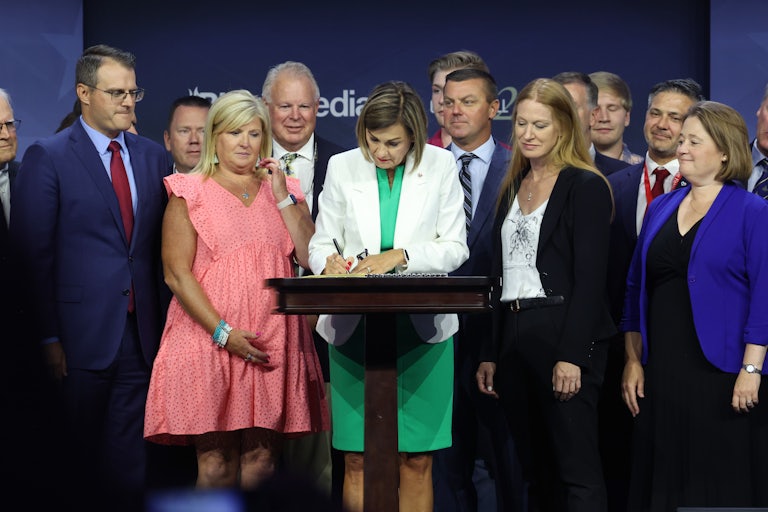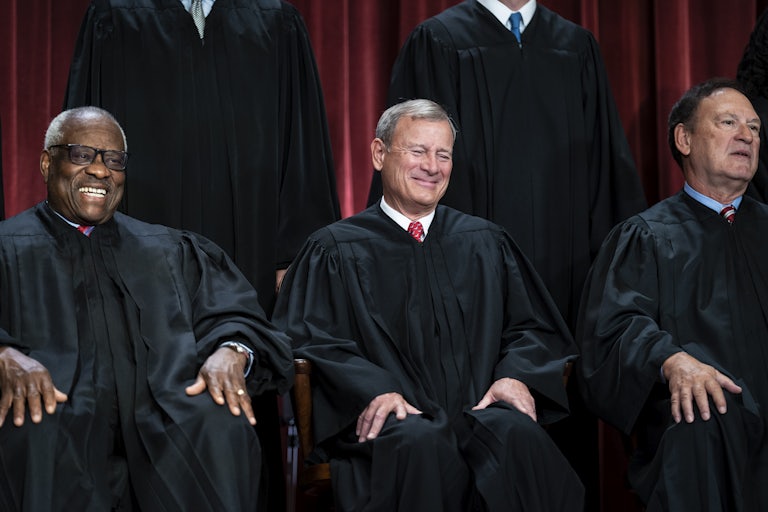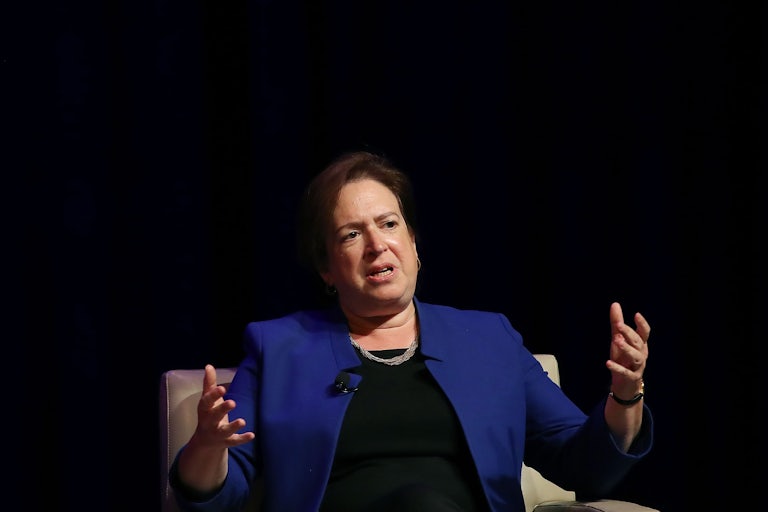Trump Celebrates Supreme Court’s Huge January 6 Ruling
Donald Trump is thanking the Supreme Court for helping him and his biggest supporters.
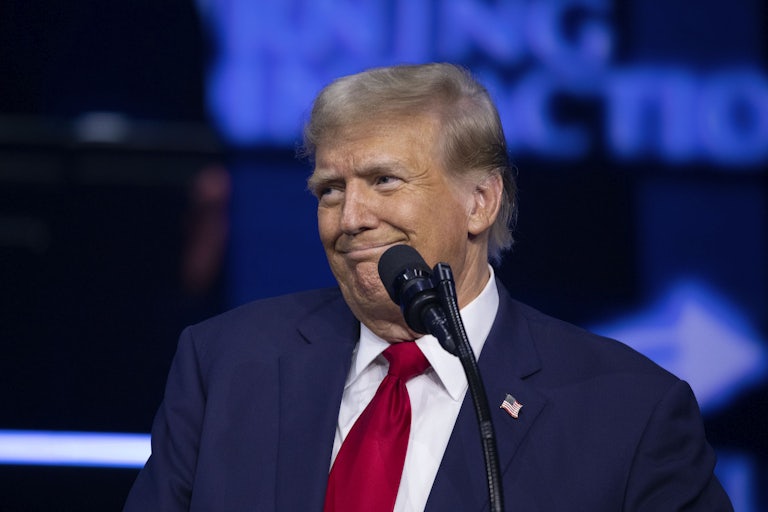
Trump took to Truth Social Friday afternoon to celebrate the news that the Supreme Court rejected a statute used for one charge against Capitol rioter Joseph Fischer, declaring the 6–3 ruling a “BIG WIN!” and “Big News!” His victory lap appears tied to how the court’s decision helps his own federal election interference case, or how it helps other January 6 rioters—but either way, his celebrations may be short-lived.
The Supreme Court ruled Friday that a statute federal prosecutors were using to charge January 6 rioters wasn’t applicable due to the order in which the relevant subsection of the statute appears. Dissenting against the decision, conservative justice Amy Coney Barrett noted the ruling was based on textual backflips to justify the decision.
Half of the charges in Trump’s federal election interference case are based on the statute the Supreme Court just reinterpreted, with Friday’s decision giving a leg up to the already-convicted felon. But that win may have a steep downside if his interference case ever goes to trial: According to Slate, the Supreme Court’s decision on Friday confirmed that submitting false evidence in an official proceeding does violate federal law. Trump is accused of helping to orchestrate a scheme where his allies submitted fraudulent elector letters on his behalf to win the 2020 election.
The Supreme Court’s ruling may also affect cases against more than 300 Capitol rioters charged with obstruction—but they’re not getting off scot-free. Rioters have faced charges of trespassing, assault on an officer, and seditious conspiracy. In Fischer’s case, his obstruction charge is just one of several that includes civil disorder, impeding police officers, entering and remaining in a restricted building, disorderly conduct and demonstrating in a Capitol building. Fischer’s case has been sent back to lower courts to determine if the obstruction charge is still valid.
In response to the Supreme Court decision, Attorney General Merrick Garland released a statement noting that no one involved in the January 6 Capitol riot has been charged with only the obstruction statute.
“The vast majority of the more than 1,400 defendants charged for their illegal actions on January 6 will not be affected by this decision,” Garland wrote. “There are no cases in which the Department charged a January 6 defendant only with the offense at issue in Fischer.”
